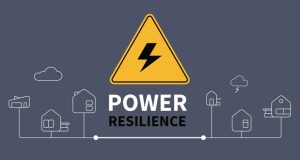SERVICE DELIVERY
Scott and his team visited hundreds of data centre rooms, where he found that a lot of IT was turned on that was not actually being used any more but was still drawing on cooling and power.
He says: “There were approximately 800 data centre rooms in about 400 buildings and over many years people had been operating in uncontrolled environments; for instance putting in IT to run a project and leaving it there at the end. They were even using some as storerooms and drying coats in there during the winter. The Police Service have other high priorities so we were happy to help them in understanding IT and risk.”
He explains they presented three alternatives for the equipment in a neglected IT environment:
- If it isn’t required, decommission it, thereby saving power and space and creating much needed capacity for the Police Officers
- If it is required, transition it on to the cloud or into one on the customer’s secure and well managed data centres
- If the IT and service was required to remain on site, help them create an efficient secure and modular environment as part of an overall renovation project.
He explains: “We’re very much aimed at delivering what is best for our customer. We are not trying to sell them the latest gadgets or services that may not be aligned to their strategy, we are interested in advising and assisting them to develop their strategy to have the maximum effect on what matters most, the officers on the street.
“Consequently, over the past couple of years we have delivered many varied services from decommissioning to cleaning, to health and safety audits and remediation. We have sat with them in commercial negotiations so that they do not fall into the same traps as previously, we have looked at their total building strategy and worked with the properties department regularly. This means we are adding value across a large spectrum of their business.”
The major city police force outsources to a number of key suppliers for its IT services, and as its data centre managed service supplier, Scott and his team regularly sit down with all the suppliers in a ‘one team’ initiative to work collaboratively.
Says Scott: “Pre-COVID , we’d sit in amongst the customer and key IT people within the organisation and what we found was we could add a lot of value in helping to fill gaps between the different contracts they had with these suppliers. Where they weren’t covered for a particular service within the existing contract, we could help and more importantly, with our varied reach and agile nature, we could quickly resolve problems and provide resource and knowhow to reduce others pain.
“We are a small but very significant team who work using a lean methodology so can start adding value by quickly plugging gaps to help move their projects forward. We have built credibility with our can-do attitude and will-do culture and demonstrated our value to the wider departments.”
All the key external IT suppliers are subject to an incentive programme, and every quarter, are scored by the customer and the other suppliers on their performance. Keysource has regularly and consistently scored highly which is no mean feat. According to Scott, he is delighted to receive regular, informal feedback, on his teams and company culture, and was proud to say that, for every member of his team, “it’s as if we work for the customer, as part of their team”.
SAFE AND SECURE
Since lockdown, Keysource’s people have remained available, working across the sites to monitor and manage the IT services within data centres and other IT environments. Most are working in bubbles, or on their own to help ensure social distancing, and there is a range of COVID provisions in place, including the use of PPE and regular temperature checks.
Says Scott: “My people are aware that their safety is paramount and if they don’t feel safe we won’t send them, but as their work is mission critical we’ve sourced a couple more vans so they don’t need to use public transport. We are also trialling ‘man-down’ digital products because they are lone working. These work like smart watches, so if someone falls over, we’ll know, and we can track where they are.”
As a globally experienced data centre consultant, Scott predicts that the impact of the pandemic on data management could be far reaching. For instance, pre-COVID , when customers wanted to make changes to remote sites, they would traditionally send a team out to carry out a survey, then another to install the power etc.
He says: “For some time we’ve been trying to gather and utilise the data to ensure that people don’t need to keep going back and forth, but instead use the existing data to prep at their desk and then go and do the job once. COVID -19 has forced people to learn to trust in the data.
“We know what’s going on in those [data] rooms, and we can convince our clients of that now. It also means we’re able to start looking at the wider aspect of gathering data. For instance, in police stations you can start to use digital control measures to insure against overcrowding and make sure social distancing is in place by using technology such as remote sensors on doors, locks over IP and the latest camera technology.

He concludes: “Data is already the most important component for us to do our work in ensuring that the officers on the street are technically enabled and safe. We use it to reduce service risk, remove health and safety issues and save much needed money for our customer, so now when the data we provide is aligned to all those things it’s a winning combination.”






